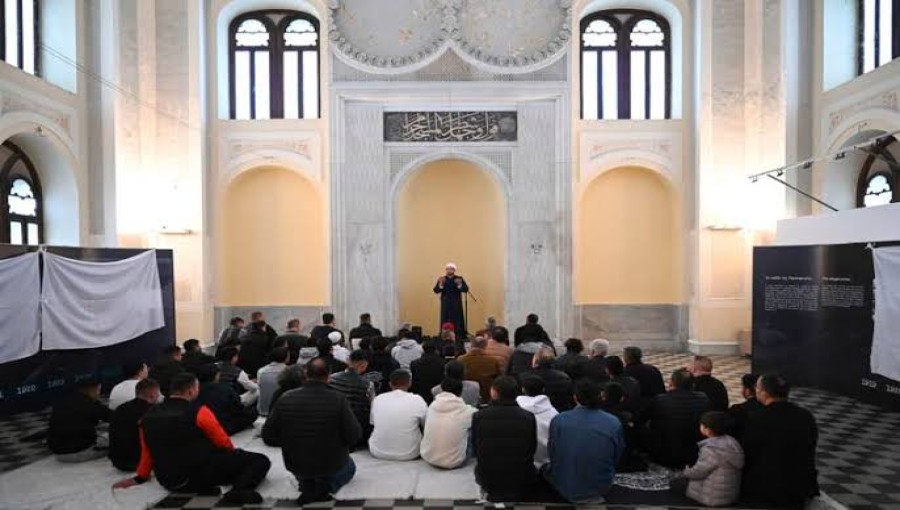For a century, Greece's historic Yeni Jami Mosque remained dormant, its doors closed to Muslim worshippers in the Orthodox Christian majority country. However, recent developments mark a significant shift in policy as Greek authorities have chosen to reopen the mosque, allowing Eid-ul-Fitr prayers to be offered within its ancient walls.
The Yeni Jami Mosque, a testament to unique architectural craftsmanship, has served various purposes over the years, from shelter to museum. Originally built during the Ottoman rule, the mosque catered primarily to the Donmeh community, individuals who had converted from Judaism to Islam. However, following an agreement between Greece and Turkey in 1923, which facilitated the exchange of minority populations between the two countries, Muslim prayers ceased within the mosque's confines.
In a landmark decision, Greece has now restored access to the mosque, enabling the country's minority Muslim population to reclaim their lost traditions. The reopening of the mosque for Eid-ul-Fitr prayers has been met with enthusiasm and gratitude from the Muslim community, who view it as a symbol of religious tolerance and respect.
One Greek citizen expressed appreciation for the initiative, highlighting the message of inclusivity and religious freedom it conveys. The decision to reopen the mosque not only acknowledges the presence of Muslims in Greece but also extends facilities for prayer, fostering a sense of belonging and acceptance within the community.
Despite its historical significance, many were unaware of the mosque's existence until recently. With the doors of the mosque opened to worshippers for the first time in a century, scores of individuals seized the opportunity to participate in Eid prayers, marveling at the architectural grandeur and historical significance of the monument.
Constructed in 1902 by Italian architect Vitalino Poselli, the Yeni Jami Mosque stands as a testament to Islamic craftsmanship, showcasing intricate designs and architectural details that reflect its rich heritage.
As Greece takes this monumental step towards religious inclusivity, it signals a departure from the past and a commitment to embracing diversity within its borders. While Orthodox Christianity remains dominant in the country, the reopening of the Yeni Jami Mosque serves as a beacon of hope for religious minorities, reaffirming their place in Greek society and celebrating the principles of tolerance and coexistence.






























Comment: